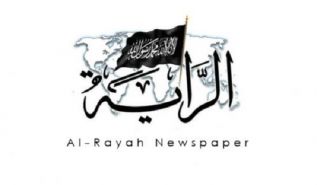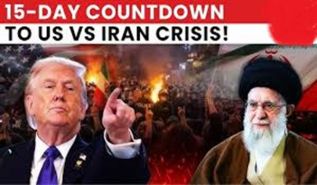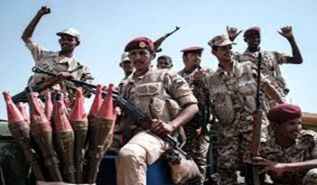بسم الله الرحمن الرحيم
Asean 2025: A Path to the Future or Reinforcement of Global Capitalist Hegemony?
Al-Rayah Newspaper - Issue 559 - 06/08/2025 CE
By: Ustath Abdul Hakim Othman*
The 46th ASEAN Summit, held from 26 to 27 May 2025 in Kuala Lumpur, with the theme “Inclusivity and Sustainability” concluded with a series of declarations and strategic plans that were presented as efforts to build an inclusive, resilient, and sustainable regional future. The “Kuala Lumpur Declaration on ASEAN 2045: Our Shared Future” served as the main reference document, outlining a 20-year roadmap that encompasses political, security, economic, social, and digital transformation dimensions [ASEAN, 2025].
As a matter of fact, this summit did not signify genuine independence for its member states; rather, it further exposed ASEAN’s entrenchment within the international capitalist system and its submission to global power structures.
What is branded as ASEAN 2045 is, in reality, an extension of a neoliberal regional integration agenda. It promotes economic liberalisation, expansion of foreign investments, development of digital infrastructure, and cross-bloc geopolitical cooperation—all framed within a secular worldview that separates religion from life and governance. In essence, ASEAN continues to operate within the orbit of the Western-dominated global system, where economic growth is the supreme objective, irrespective of its impact on societal well-being, Islamic sovereignty, or social structures.
ASEAN’s commitment to digital transformation and AI governance, including initiatives such as ASEAN UBIN and the regional AI regulatory framework, is far from neutral. Rather, it constitutes direct integration into a global digital ecosystem governed by multinational corporations and shaped by strategic interests of global powers [ASEAN, 2025]. Technology is weaponised as a tool of dominance and ideological colonisation, rather than being harnessed under the framework of Taqwa (God-consciousness) and Shariah responsibility. The capitalist system commodifies data, objectifies humans through analytics, and institutionalises surveillance via AI—an approach that starkly contradicts the Islamic worldview, which upholds justice and the sanctity of human dignity.
In the sphere of security and geopolitics, ASEAN once again demonstrated its inability to manage crises effectively or based on principled positions. The ongoing Myanmar issue, managed through the ineffective Five-Point Consensus, illustrates that ASEAN functions as a weak diplomatic platform devoid of any enforcement authority [Reuters, 2025a]. In the case of the South China Sea, despite recurring references to UNCLOS and calls for peaceful resolution, there is a lack of political will to confront China’s assertive actions in any meaningful way [Reuters, 2025b]. ASEAN remains a technocratic body, operating on pragmatic consensus rather than on ideological clarity, principled stances, or true sovereignty.
Economically, the imposition of U.S. tariffs on six ASEAN nations reflects the vulnerability of the region’s economies within the global system [Reuters, 2025c]. Instead of seeking liberation from this capitalist order, ASEAN responded by accelerating negotiations on trade agreements such as ATIGA and ACFTA 3.0. This further entrenched ASEAN within the framework of the WTO and the global free trade regime—a system that renders Muslim nations mere consumer markets and cheap labour pools for global capitalist enterprises.
Compounding matters was the presence of high-level U.S. officials, led by its Secretary of State Marco Rubio, at the ASEAN-related summits on 8-12 July 2025. This was not a symbolic appearance but a strategic move to ensure ASEAN in general, and Malaysia in particular, remained aligned with Washington’s geopolitical interests [Reuters, 2025d]. These include countering China’s influence, lobbying for AI and digital security policies aligned with Western frameworks, and maintaining U.S. economic and military dominance in the region.
Apparently, the 46th ASEAN Summit effectively became a theatre of competition between American and Chinese imperial agendas, with ASEAN serving as a "geopolitical pawn". This starkly reveals the absence of any sovereign political entity committed to protecting the Ummah’s interests on the basis of an Islamic ideological framework.
The trilateral ASEAN–GCC–China cooperation, though presented as a Southern economic consolidation, remains trapped within the same capitalist paradigm. The Gulf Cooperation Council (GCC) States themselves operate under the capitalist system, rendering such agreements another extension of cross-border neoliberal expansion—far removed from any sincere effort toward the political unification of the Muslim Ummah under a Khilafah (Caliphate) that implements Shariah in its entirety [AP News, 2025].
Similarly, the ASEAN Women’s Economic Summit (AWES 2025) framed women’s empowerment through the lens of liberal productivity. Women are reduced to economic agents to meet the needs of global labour markets, ignoring their foundational role in family structure, generational nurturing, and community cohesion. The capitalist system continues to measure a woman’s value by GDP contribution, whereas Islam honours women as noble beings with distinct roles defined by Shariah. True empowerment will only be realised when the Islamic social system is implemented in full—preserving women’s dignity and balancing rights with responsibilities.
On environmental issues, ASEAN’s pledges for sustainable development and climate action remain undermined by continued reliance on fossil fuels under the guise of energy security (Energy Tracker Asia, 2025). Sustainability within the capitalist system is little more than a public relations slogan, masking the deeper reality of greed and systemic resource exploitation. Without a fundamental shift away from the underlying ideology of capitalist development, all green rhetoric remains a deceitful facade.
In conclusion, the 46th ASEAN Summit exposes the real face of the international order that continues to shackle the Muslim world—an order based on capitalism and secularism, where political authority is a tool of dominance, economic systems are mechanisms of subjugation, and technology is an apparatus of surveillance and control. ASEAN is not a vehicle of true emancipation for the Ummah but a post-colonial construct operating within the Westphalian model that fragments the Muslim world into weak, dependent nation-states.
The Ummah requires an alternative system—not merely to liberate itself from foreign domination, but to unify under a single political leadership that governs according to the divine laws of Islam. This is the Khilafah (Caliphate) upon the method of the Prophethood (Khilafah ‘ala minhaj an-nubuwwah), which once led the world with justice, united the Muslim lands under one banner, and stood as a bulwark against economic, military, and cultural colonisation. Only with the return of this system can the Ummah fight the dominance of both the West and the East, and begin to rebuild a truly sovereign, righteous civilisation.
* Official Spokesperson of Hizb ut Tahrir in Malaysia




